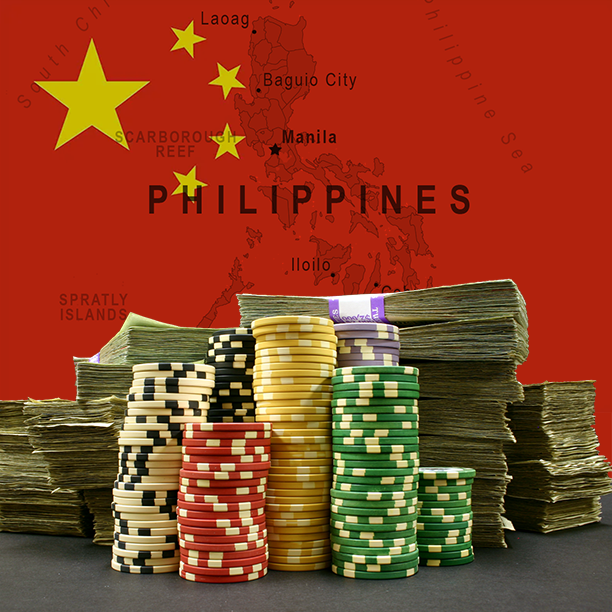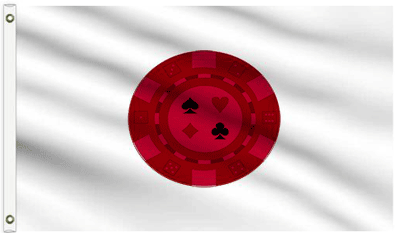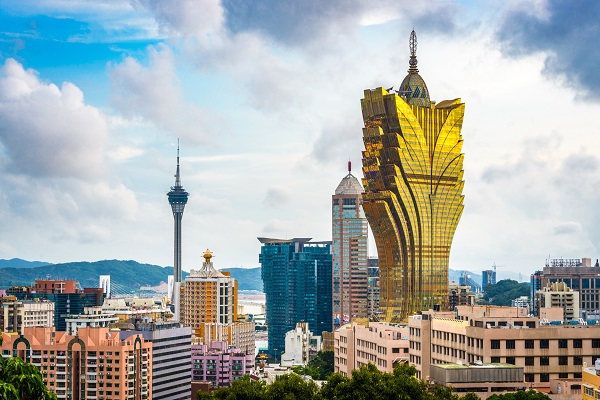Macau, Japan and the Philippines all making waves again in the Asian gambling market
For about a decade the buzz in the gambling industry centered on Asia. It was understood that there were growth opportunities in Europe, but the UK and other parts of Europe were largely saturated with large, well-established companies, so any huge growth or opportunities for newcomers was poor. As for North America, online gambling became legal in 2011 after the DOJ ruled that the Wire Act didn’t apply to casinos, but most states chose to remain on the sidelines, since they believed the opinion could be changed. In addition, many states had to deal with Native American Tribes, which had exclusive rights to casino gambling. And, some states had constitutional requirements that all gambling had to be done in-person. Legal sports betting was still a pipe dream due to both the Wire Act and PASPA. Consequently, around 2008 to the early 2010s most casino companies and analysts looked at Macau, the Philippines, Singapore and possibly Vietnam as areas for growth.
China controls the market
While the Asian market appeared juicy on paper, the biggest concern was China. With well over a billion avid gamblers in the country, China represented a huge opportunity both with land-based casinos and online gambling, but gambling in China proper was absolutely forbidden by law and rules for traveling to gamble were strict. Macau was designated a special administrative region after it was returned to China in 1999 and China permitted Macau to allow gambling from Chinese nationals, but over the years the number of visits were capped, as was the amount allowed to be wagered.
At first the Chinese government didn’t enforce the rules strictly, but over time they began to crack down on people traveling over their allotted permission, citing concerns with addiction and crime. Some junkets were accused of being fronts for Chinese gangs and provided illegal activities to bettors, like drugs and prostitutes, in exchange for casinos using the junkets giving a percentage of their winnings to junket operators. Moreover, the Chinese government had a falling out with Sheldon Adelson of Las Vegas Sands to the point where LVSC hired a consultant whose main purpose was to smooth things over with the Chinese government when Adelson and the government came to a head.
As for online gambling, it is strictly illegal in China, but residents get around the law by using proxy servers to access gambling sites and use cryptocurrency to process deposits and withdrawals. If a resident is caught betting online, they could be fined or jailed and operators that process bets for residents could be fined, jailed or put to death. Yet despite these concerns it was still believed that Asia was the future of gambling and some companies, like Las Vegas Sands, decided to focus on expanding in Macau and Singapore and let the Las Vegas operations simply proceed as a cash cow with little new investment. Other companies, like MGM and Wynn, looked to grow in Asia, but in recent years they have shifted their concentrations on North America after SCOTUS struck down PASPA in 2017 and after Canada struck down its single game sports betting ban and Ontario launched an open online gambling and sports betting market.
The excitement surround Asia seemed to fizzle after China announced rules to crack down more on gambling tourism, but took a nose dive after COVID-19 hit in 2020. Covid rules, including a mandatory isolation in a hotel before being allowed to play, led Macau to almost become a ghost town. And similar rules in other Asian countries led to far fewer visits by Chinese nationals to casinos in the Philippines, Singapore and Vietnam. To get their fix, more Chinese nationals turned to online gambling and the Chinese government issued a warning to countries that were hosting the gambling websites.
Eye on the Philippines
In particular, they took aim at the Philippines, which offers online gambling via the Philippines Offshore Gambling Operators (POGO), and were warned by the Chinese government to do something.
This led to the Philippines Department of Justice shutting down 175 sites that were deemed to be operating illegally or being involved in crime or scams, and they deported 40,000 Chinese nationals who were working for those sites. The workers’ job was to sign up Chinese residents for the POGOs, answer customer service questions and help them move money in and out of the online casinos.  The Philippines government said they were making the move to combat crime. "The crackdown was triggered by reports of murder, kidnapping and other crimes committed by Chinese nationals against fellow Chinese nationals," a Philippines minister said, although it is generally accepted that the move was as much to stave off action by China as it was to combat crime. It is true that during Covid many companies began luring people to work for gambling companies saying they would get good paying jobs, but in reality they turned out to be fronts for human trafficking and forcing those who applied to work to get involved in text and phone scams and credit card fraud with threats to their lives if they objected. 32 POGO sites still operate but they have a Philippines Amusement and Gaming Corporation (PAGCOR) license and are under close scrutiny by their licensor. It should also be noted that PAGCOR runs its own casinos.
The Philippines government said they were making the move to combat crime. "The crackdown was triggered by reports of murder, kidnapping and other crimes committed by Chinese nationals against fellow Chinese nationals," a Philippines minister said, although it is generally accepted that the move was as much to stave off action by China as it was to combat crime. It is true that during Covid many companies began luring people to work for gambling companies saying they would get good paying jobs, but in reality they turned out to be fronts for human trafficking and forcing those who applied to work to get involved in text and phone scams and credit card fraud with threats to their lives if they objected. 32 POGO sites still operate but they have a Philippines Amusement and Gaming Corporation (PAGCOR) license and are under close scrutiny by their licensor. It should also be noted that PAGCOR runs its own casinos.
A recent development with regards to the Philippines was announced last week at G2E Asia in Macau when PAGCOR CEO Alejandro Tengco announced that the Philippines was planning to expand operations in the area of slots and poker. This apparently would include both online and land-based casinos. To date, almost all betting online has been on sports. There were suggestions that the Philippines would shut down the entire gambling sector because of all the nefarious activities, but PAGCOR said that the industry makes too much money for the government to give up the revenue, despite the illegal activities, so he proposed a solution that would allow the POGOs to continue operating without the baggage. Tengco said that PAGCOR are putting all the POGO operators on notice that they will need to apply for a new license with very specific rules and requirements and are on probation until they can prove they are in adherence with these rules. Without explaining what exactly is in the new regulatory framework, it is understood that POGOs will have to adhere to strict rules on ensuring they are not involved in scams, are not involved in money laundering and are not targeting Chinese nationals. If they fail to comply, they will lose their license and will be deemed an illegal operation subject to fines and imprisonment if they are caught. Moreover, Tengco indicated that PAGCOR will get out of the casino business and be solely a regulator as is the case with every other world jurisdiction where the regulator has no vested interest in gaming itself.
Still no casinos in Japan?
Another interesting development in Asia took place in Japan. After back-and-forth negotiations, MGM was given the bid to build a resort casino in Osaka worth $8.1 billion. The initial plan was to have the resort at least partially built for the 2025 Expo in Japan, but that was effectively killed with COVID-19. As projected revenues declined due to the Chinese announcement that they may curtail visits by nationals to Japan casinos and with no indication how long the pandemic would last, bidders dropped out and, in the end only MGM was left standing.  MGM wanted to drop their bid by almost 50%, but they realized the country would probably say no. But, as the sole casino company remaining in the Osaka bid, MGM dropped their offer from $12 billion to $8.1 billion, which was accepted. The bid was contingent on MGM being able to get funding from various sources, but several banks have now said they are not interested in funding the project and sources have said MGM brass in Las Vegas believes the bid may not be viable.
MGM wanted to drop their bid by almost 50%, but they realized the country would probably say no. But, as the sole casino company remaining in the Osaka bid, MGM dropped their offer from $12 billion to $8.1 billion, which was accepted. The bid was contingent on MGM being able to get funding from various sources, but several banks have now said they are not interested in funding the project and sources have said MGM brass in Las Vegas believes the bid may not be viable.
More concerning for MGM is a push by anti-gambling groups asking Osaka to revoke MGM’s bid due to a sort of “bad actor” clause. Japanese statutes require any operators to be of good character and, in May of last year, MGM bought the assets of LeoVegas and Royal Panda, and earlier this week a Japanese group called “Society for Considering Gambling Addiction Problems” said that LeoVegas targeted Japanese residents in 2022 by offering online gambling in the country, including bonus enticements for signing up. And, since online gambling is illegal in Japan, they believe it disqualifies MGM as a bidder for the resort because they violated the Japanese Act on Punishment of Organized Crime. For its part, MGM stated that LeoVegas and its sister site Royal Panda stopped catering to the Japanese market in 2022 and MGM itself saw no benefit from the operations. Regardless, with all the uncertainty, it is clear that the resort will not be ready in any shape or form for 2025 and MGM is apparently now targeting 2030 as the start date for the site, provided they can finally get all their ducks lined up.
Macau back on top
The last major development in Asia is with Macau. Once seen as a can’t miss opportunity, that changed with COVID-19. When the pandemic first hit Wuhan most things in Asia were put in lockdown, including Macau, which went into a 15-day lockdown in February of 2020. It re-opened in March, but with strict rules requiring a 2-week quarantine for visitors and no visits from mainland China, which basically turned the casino city into a ghost town.  Revenues declined to a point that casino companies were losing money and the enthusiasm all but faded. Throughout the next two years the region went into several lockdowns, continued with isolation requirements and banned visits from most countries. Isolation and travel restrictions, including a negative COVID-19 test, were only lifted last December. Prior to the pandemic, in 2019, Macau saw gross gaming revenue of 293 billion Macau Patacas (one Pataca is worth about 0.12 USD), which was down from its peak about five years earlier when revenue was over 320 billion Patacas, but was higher than 2016 and 2017. The drop beginning in 2015 was said to be almost exclusively because of Chinese crackdown on junkets. In 2020, revenue for that year was 61 billion Patacas (an almost 80% decrease from the prior year) thanks to COVID-19. In 2021 revenue was only about 88 billion Patacas and in 2022 it was only about 43 billion Patacas, the lowest revenue figures ever.
Revenues declined to a point that casino companies were losing money and the enthusiasm all but faded. Throughout the next two years the region went into several lockdowns, continued with isolation requirements and banned visits from most countries. Isolation and travel restrictions, including a negative COVID-19 test, were only lifted last December. Prior to the pandemic, in 2019, Macau saw gross gaming revenue of 293 billion Macau Patacas (one Pataca is worth about 0.12 USD), which was down from its peak about five years earlier when revenue was over 320 billion Patacas, but was higher than 2016 and 2017. The drop beginning in 2015 was said to be almost exclusively because of Chinese crackdown on junkets. In 2020, revenue for that year was 61 billion Patacas (an almost 80% decrease from the prior year) thanks to COVID-19. In 2021 revenue was only about 88 billion Patacas and in 2022 it was only about 43 billion Patacas, the lowest revenue figures ever.
In 2023, visits and revenues started rising again after restrictions were finally lifted and gross gambling revenue approached 80% of pre-pandemic revenue by June. And most encouragingly, just this week it was announced that July revenue will be the highest since the pandemic and analysts believe that by September, Macau will reach pre-pandemic figures. In fact, several analysts believe that 2024 will see revenues rise to record numbers. Strangely, the revenue is way up despite visits to Macau still being down from before 2020. One analyst said this isn’t surprising and it just reflects that many Chinese nationals and other wealthy individuals in Asia have been spending less and simply have a lot more disposable income than before. Consequently, there are less people visiting, but the ones visiting are gambling more. The analyst said that this is common in most industries among wealthier individuals since they continue to profit and grow their wealth during difficult times, while the rest of society tightens their belts.
So, Asian gambling news is once again at the forefront. No doubt the United States and Canada will be generating the most coverage as sports and casino betting continue to grow in North America, but gambling is expanding everywhere and OSGA will continue to follow all developments worldwide. If there is one company that must be in the most glee over the recent developments it’s Las Vegas Sands. Not only should they start seeing record profits again with their Asian investments, but with Sheldon Adelson’s passing they can probably fire the individual whose job it has been to smooth over relations between Adelson and the Chinese government and that will help their bottom line.
Read insights from Hartley Henderson every week here at OSGA and check out Hartley's RUMOR MILL!








































